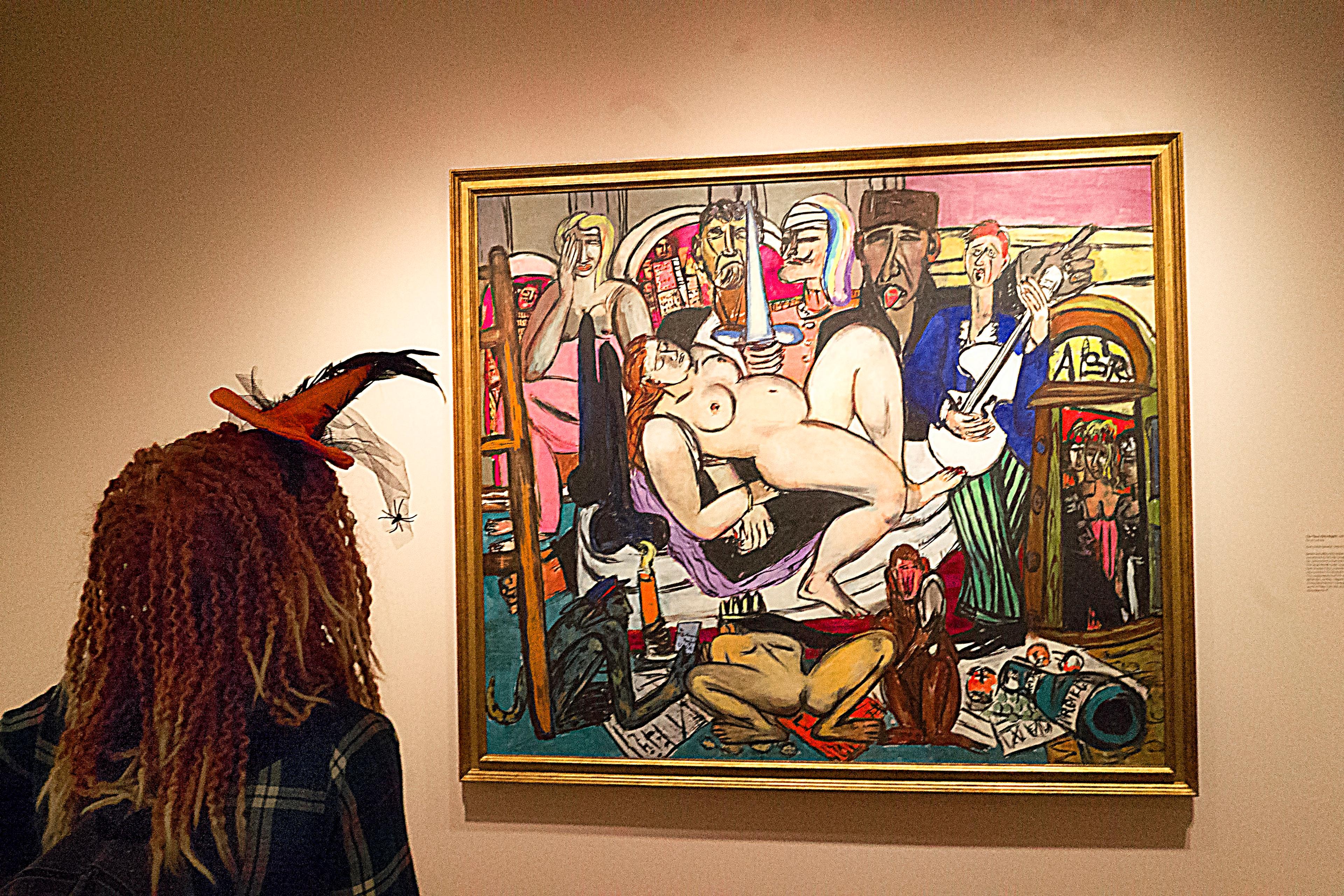Ask someone to describe their most vivid and emotionally charged memories and you might expect them to recall an especially joyful birthday, a remarkable holiday or a traumatic argument. But what if instead they told you about an emotional scene from a movie or television show they’d watched? Something like a scene from the series Avatar: The Last Airbender (2005-08) – the one where Iroh sang for his deceased son on top of a hill in the fictional city of Ba Sing Se. Would you be surprised if they said a memory based on a fictional event like this had as much clarity and emotional intensity as important events from their own life?
To understand the potential impact of memories from fiction, it pays to take a step back to consider the influence of our real-life autobiographical memories. One function they serve is to help validate how we see ourselves. If you believe you enjoy solitude, your memories of solitary enjoyment will affirm this. On the other hand, you are less likely to rehearse and share memories of events that contradict your self-image. Autobiographical memories can also guide our decisions by informing us about the consequences of our prior choices. They also promote social sharing and bonding. I can talk about my memories from high school or my grandparents to initiate a meaningful conversation with someone.
Increasingly, psychologists are realising that memories of fictional stories can serve similar functions. Although the story is not based on reality, the experience of the story makes it real. Consonant with this view, a study from 2017 showed that the themes that people consider most important in their lives align with the fictional stories that they say most resonate with them, and the stories they choose to engage with also frequently mirror their identity.
The psychologist Elizabeth Marsh and her colleagues have highlighted the way memories from fiction can also teach us about situations and concepts we are not exposed to in real life. A teenager might decide to pursue a career in physics or mathematics because of the influence of the characters in a science-fiction novel, such as Perdido Street Station (2000) or The Dispossessed (1974); or someone who lost a family member for the first time could draw upon the grief experienced by fictional characters such as the ones in the book Six Feet Under (2001) and find a framework to understand and deal with their feelings.
All of this resonates with my own experiences. The themes from A Series of Unfortunate Events (1999-2006) that I read when I was a child had a lasting impact on my outlook on life. I also often think about the execution of Ned Stark or the trial of Tyrion Lannister in the book series A Song of Ice and Fire (1996-). Alongside the impact of real-life events of a similar nature, these memories have been formative in my ideas about the accustomedness of injustice and the desperation of virtue in times of absolute corruption. There is a good possibility that you too refer to some fictional events when conceptualising real-life problems. Or that fictional experiences have become part of your toolkit to understand the world – even if you aren’t aware of it. If you’re partial to horror, perhaps somewhere in your mind the townsfolk of Innsmouth might be lurking with all their Lovecraftian hostility, driving your avoidance of isolated small countryside settlements and your worry about xenophobia.
We found that movie memories were remembered with more detail than book memories
Given the psychological importance of memories for fictional events, my colleagues and I wanted to find out more about the kinds of fictional media that tend to seed significant memories – including memories from video games, which until recently have been overlooked by psychologists – and whether some people are more receptive to fictional memories than others.
One key distinction is whether the sensory aspects of a fictional event are delivered to a person, as is the case with movies, or whether they must be imagined, as is the case in books. It is a well-established phenomenon that memory for perceptual details is stronger for events that are actually perceived rather than imagined. In the case of pure imagery, where the mind conjures the scene without the aid of external stimuli, the usual flow of perception is inverted. The mental operations generating perceptual material trace their path backward, moving contrary to the natural course of sensory experience. Notably, the mid-layer of the primary visual cortex, activated during direct perception, does not show the same level of activation, suggesting a weaker sensory signal.
These neuroscientific findings chime with the results of our own study, in which we asked hundreds of people to describe their memories of fictional events from different media types. We found that movie memories were remembered with more perceptual details than book memories. I am sure some of you have experienced the characters’ appearances in the movie adaptation taking over your original imagination of these characters while reading the book. For instance, my mind now paints the actor Hugo Weaving whenever I read the character Elrond from The Lord of the Rings (1954-55).
What about memories from video games? There are good reasons to believe these might have special characteristics. Whereas people will typically describe the characters in a movie or a novel in the third-person singular, gamers describing a memory from a video game will often refer to their character in the first-person singular, removing the linguistic distancing between the character and themselves. The reason behind it is rather straightforward: video games have some level of agency, sometimes just enough to make our character jump or look around. In richer worlds, such as role-playing games, your choices can shape entire storylines. When we roleplay in a beautifully crafted narrative, it’s a two-way street; the game leaves us with meaningful memories while real-life experiences guide our choices in-game. It’s like painting your identity on a limited canvas, where the lines blur between fiction and personal memory.
Yes, I was the Harry Du Bois of the video game Disco Elysium who turned a church into a music club in Martinaise and survived the conflict between union workers and military contractors, all while trying to solve a murder case. This involvement of self through agency helps explain our finding that video-game memories are remembered with more perceptual details than books, and with more confidence than both books and movies.
Forming empathetic connections with story characters deepens immersion
Despite being viewed on a screen (and often from a third-person vantage point), we also found that video games were the only media type more likely to be remembered from a first-person rather than third-person perspective, similar to autobiographical memories for real-life events. They are also highly immersive – which is another important factor known to increase the memorability of fictional events. This may be tied to agency and embodiment. Controlling a virtual character activates motor simulations in our brains. Have you ever found yourself tilting left or right while steering in a game? That’s embodiment.
Yet another important factor to consider in memories for fiction is believability. This is distinct from ‘ontological intuitiveness’ (our sense that dragons are not real or that humans cannot fly). It concerns the complexity and accuracy of the representation of human interaction in the story world. If you’ve watched it, you will definitely remember how big Game of Thrones (2011-19) was. Many people, including me, remember some scenes from the series extremely well and some dialogues by heart. As an explanation for its success, some scholars have proposed that the narrative of A Song of Ice and Fire (the book series by George R R Martin that the show is adapted from) resembles real-life social networks, for example in the sense of how many social connections people are realistically able to sustain. Despite being a fantasy story, the complexity of the characters, factions, relationships and behaviours in A Song of Ice and Fire reflects human nature better than many ‘realistic’ stories.
Of course, the nature of the fictional medium is only one part of the equation – whether or not a fictional event takes root in memory and exerts a psychological influence also depends on the person consuming that story. Some people easily engage with stories, while others find them meaningless. A lot of it seems to come down to empathy. People with a greater predisposition to experience the emotions of others also tend to engage with their mental representations (of stories) as if they are part of reality, increasing immersion. Empathy can be thought of as extending the field of self to capture non-self-referenced information as if it is self-related. In turn, information organised around the concept of self is more durable than non-self-referential information. That’s why forming empathetic connections with story characters deepens immersion and creates richer memories with higher emotionality than for those who don’t.
You might also think that people who frequently use fiction to escape from reality are more likely to form memories about fictional events. After all, you can’t form memories for fictional events if you don’t encounter them. In our study, we found that a stronger desire for ‘escapism’ (as measured by agreement with statements like ‘I read to escape from real life’ and ‘Playing the game helps me forget about some of the real-life problems I have’ ) was associated with engaging with fiction more frequently. However, encountering fictional worlds often is not enough to form rich memories of them. One person might watch hours of television daily to distance themselves from their stressful lives yet remember little of it. By contrast, someone else might only watch a few movies yearly and yet form more meaningful, emotional and long-lasting memories of fiction. Frequency is not as much of a manifestation of rich subjective experience as empathy and emotionality.
To understand why, let us return to the scene from Avatar: The Last Airbender, where Iroh sings for his son. This emotional scene is remembered by many people. A former general in exile returns to the city of his greatest defeat in which he lost his son. He is now trying to help his troubled nephew and everybody around him. We know him to be a wise and humorous man, but at this moment, we see him vulnerable. Despite brightening the lives of people around him all the time, he could not help his son, and no repentance would change that. When he cries alone while honouring his son’s memory on his birthday, the emotional intensity is high. In turn, emotional material induces empathy. Research shows empathy-inducing events are better remembered than trivial events. It is also believable because, by this point in the series, we are familiar with this character and his world. We do not find it unconvincing or out of place that this is something the Iroh we know would do. Our deep immersion is sustained.
There is also beautiful scenery in this animation sequence: on top of a hill at sunset, Iroh removes his hat then kneels down in front of a tree from which the leaves are falling. The aesthetics make the perceptual details more memorable. If you remember this scene, you are probably also hearing Iroh’s singing in your mind, his lines delivered with haunting emotion. Additionally, research shows that rehearsing events makes their details more memorable. This event crafts a compelling narrative structure that can resonate with and mirror the viewer’s personal experiences. There is a good chance an emotional event in real life will make me remember this fictional event or talk about it with other people, increasing the rehearsal of it.
If you are someone who finds it easier to absorb imagined or fictional content and form empathetic connections with it, all of these aesthetic and narrative qualities of different types of media will be boosted for you. Even for scenes of lower quality or not so overtly presented emotionality, your empathy will make you more emotionally invested, and barriers between the self and others will be thinned when processing the scene’s information. Now it is not something completely independent from you; it is somehow related to you.
While certain recollections of fiction can mirror significant autobiographical memories, it seems inevitable that real-life memories overall will tend toward being more meaningful, especially because, by their very nature, they are so deeply imbued with personal significance. Yet, within the hierarchy of memories, there exist rare fictional narratives that transcend their boundaries and offer a semblance of autobiographical significance. When we recall these stories, they serve not merely as fiction but as places where we feel truly at home. It is a home that can sometimes feel more real than the material existence from which we are seeking to escape.








